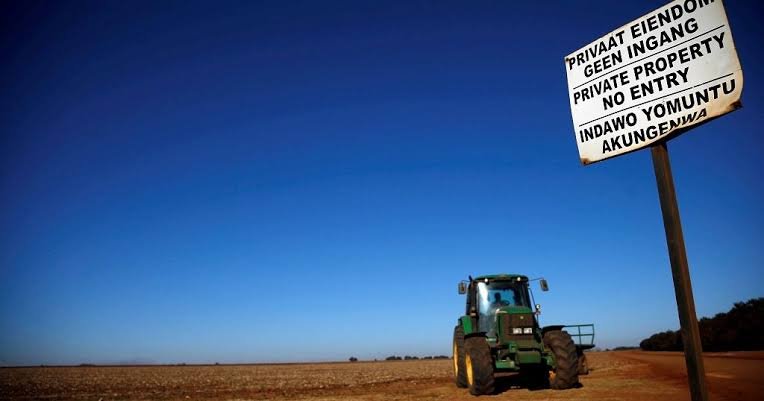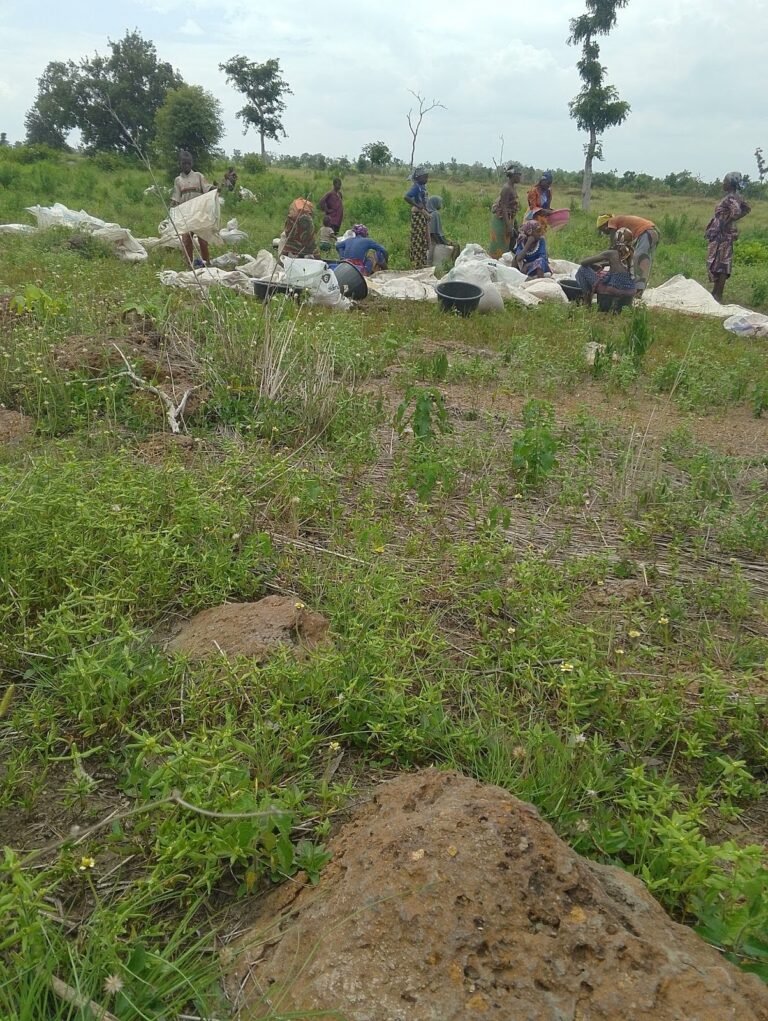South Africa’s post-1994 democratisation enshrined protected property rights in the Constitution – including the crucial right to compensation upon expropriation – which heralded a break with our profoundly anti-property past. Yet, for the three decades of the post-Apartheid era, the African National Congress (ANC) has pursued policies that undermine these rights, culminating in the 2024 Expropriation Act.
Yesterday, the Free Market Foundation (FMF) launched its latest paper, “Constitutional Land Reform: Alternatives to Confiscation and Land Retribution”, which I authored as part of our Liberty First initiative that seeks to make tangible, constructive proposals for policy reform.
The Expropriation Act has been in the news cycle since January this year, when President Cyril Ramaphosa assented to the legislation. Unfortunately, the notion that there could be alternatives to this destructive policy has rarely been noted.
Expropriation Act
The Act deviates from constitutional protections by allowing compensationless confiscation and below-market-value expropriation, framed as necessary for land reform but in fact having little to do with that constitutional obligation. Instead, the Expropriation Act serves exclusively as a tool for political retribution and state power expansion.
The Constitution’s property provision effortlessly brings security of property, the expansion of ownership, and the necessity of restorative justice together. And while these factors are usually said to come at one another’s expense, nothing could be further from the truth. The achievement of equitable land reform is possible without coercive dispossession or unlimited government power.
The Expropriation Act does not align with global standards where expropriation laws protect property owners. In post-colonial states like Singapore and the United States, or land-scarce Switzerland, such laws rightly defer to owners, treating market-value compensation as sacrosanct.
South Africa’s new law, however, enables confiscation and prioritises state interests, treating owners as hurdles to state land acquisition or even criminals who ostensibly had a hand in past injustices. Were this in fact the case, the state would have prosecuted or sued landowners for their misdeeds. Instead, as a matter of political expedience, expropriation law is being morphed into a tool of punishment and political rent-seeking.
Parliament should repeal this unconstitutional Act and replace it with an Expropriation Control Act that re-centralises property owners as a protected class under expropriation law. Protecting owners from state abuse is, after all, what expropriation law exists to do.
An Expropriation Control Act should regard owners as innocent victims whose properties the state requires for reason of social improvement. It should prohibit confiscation except in narrow, court-sanctioned cases (such as criminal asset forfeiture, judicial attachment of assets, state property, and truly abandoned property), and mandate market-value compensation as a minimum in all cases of expropriation. It should impose various other substantive limitations on the ease with which government could coercively acquire property.
The Land Court Act must also be amended to align with accepted due process standards, ensuring the Land Court operates as nothing more than a specialised High Court division that is bound by all that court’s usual rules.
Redistribution
Section 25(5) of the Constitution mandates fostering equitable access to land, but supporters of the Expropriation Act misinterpret this as endorsing coercive redistribution. But redistribution does not enable citizens to gain access to land – it merely deprives some of their property arbitrarily, while making others state tenants.
Surveys by the South African Institute of Race Relations (IRR) show only about 1% of South Africans prioritise land reform, indicating no public “hunger for land” that could ostensibly justify a redistributionary agenda.
Liberalising property ownership
Instead, the state should deregulate property transactions, eliminate capital gains taxes, cap municipal property rates, and remove agricultural land subdivision restrictions. While readers might regard these as normal interventions, they make landownership inaccessible to millions of South Africans.
Does anyone believe that a poor family, which has won a restitution claim to a large tract of land, would be capable of paying the taxes on that property? Of course not. It is little wonder then, that so many restitution beneficiaries opt for financial compensation instead.
These reforms would make ownership more affordable, enabling South Africans to participate in the property market with fewer bureaucratic or financial barriers contrived by the state.
A housing voucher programme, as proposed in the IRR’s Right to Own Bill, would further allow low-income households to purchase, rent, or build homes, again fostering conditions for equitable access without coercion.
Justice for past wrongs
Sections 25(6) to (9) of the Constitution further address historical dispossession, entitling persons or communities living with insecure tenure to have it secured, and restitution for racially discriminatory land losses post-1913.
Strengthening the 1994 Restitution of Land Rights Act is key, ensuring perpetual claim eligibility and increased funding in this always-underfunded portfolio.
Restitution, unlike redistribution, is a matter of justice, returning identifiable property to its rightful owners. Redistribution, as we have seen, and by contrast, is unconstitutional retribution that takes property from innocent owners for political ends.
The state, holding vast land assets, should transfer its property, in ownership, to deserving citizens. Under no circumstances should the state sit on land.
State property
Legislation like the 2017 Communal Land Tenure Bill, additionally, should be refined. Not everyone in South Africa desires “Westernised” individual ownership. There is evidently a desire for communal ownership. The problem is that “communal ownership” has been masterfully warped by clever political actors into a euphemism for “state ownership.”
The 2017 bill should grant true private ownership to community formations to own property for the community benefit, but free from backdoors that enable state co-option.
The state must also divest ownership of natural resources like water, minerals, and petroleum, which it spent the better part of the past three decades solidifying. These resources should be returned to their prior owners or, if that proves impossible, should be distributed transparently to deserving South Africans. The ad coelum principle – landowners own the resources beneath their land – should apply, allowing owners to lease or sell these rights freely.
The state’s role as a landlord, particularly in peri-urban townships and the former rural homelands, has trapped millions in perpetual tenancy, creating dead capital.
Section 25(6) of the Constitution, in particular, entitles these residents to ownership, yet many in RDP houses or informal settlements lack title deeds, locking them out of the market economy.
A comprehensive audit of state-owned property is necessary, with a commitment to transfer ownership to those living or working on it. The FMF’s Khaya Lam Project has facilitated the transfer of some 20,000 title deeds since 2010, but millions more await. This urban titling, alongside rural tenure security, would unlock economic potential by allowing residents to borrow, invest, or sell.
Real alternatives to confiscation
By prioritising security of title, equitable access, and justice, South Africa can achieve land reform without undermining private property rights.
The Expropriation Act’s confiscatory approach threatens economic stability, investor confidence, and freedom under law. A constitutional, market-oriented framework ensures fairness and prosperity, proving land reform is possible without confiscation or retribution.
____________
Martin van Staden is Head of Policy at the FMF. He sits on the Rule of Law Board of Advisors and the Executive Committee of the Free Market Foundation. He is pursuing a doctorate in law at the University of Pretoria. Visit martinvanstaden.com.
This article was first published by Daily Friend on 7 August 2025














